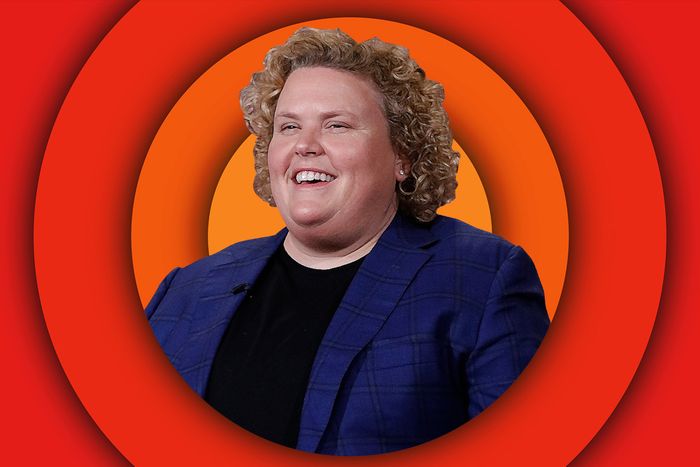
Fortune Feimster’s 2020 Netflix special, Sweet & Salty — which came out right before COVID-19 shut down most of live comedy and so much else — starts with photos of Feimster growing up, set to a choir singing “This Little Light of Mine.” Stand-up special intros tend to be perfunctory, but this one perfectly sets the tone for the hour that follows. Feimster tells stories of growing up not realizing she was in fact gay that when she was experiencing them might’ve been difficult or felt strange, but her undeniable joy shines through. Hers is a story she wants everyone to hear and enjoy.
On Vulture’s Good One podcast, Feimster discusses Hooters, playing for different audiences, and more. You can read some excerpts from the transcript or listen to the full episode below. Tune in to Good One every Tuesday on Apple Podcasts, Spotify, Stitcher, Overcast, or wherever you get your podcasts.
Good One
Subscribe on:
There’s only a couple of things in this [Hooters] joke that seem like they are clearly not true. Obviously you can have things that are fake, but it still needs to feel real enough that the audience is constantly thinking, Did she actually do that?
Because people know me and my humor a little bit more now, they know I am a silly person, so sometimes I add a ridiculous thing in there just for an actual laugh. But I never want to go too far, because I like for my stories to be grounded in reality, and because I like for my things to be relatable. Sometimes when there’s a gay woman, a straight man might be like, “Whatever she’s talking about, it doesn’t interest me.” And I want it to. Maybe it still won’t, but I like for there to be things throughout the set that even that person can relate to me.
Can you talk more about that? Because I feel like that idea — that you want to be relatable to different people — especially more recently, is one people wrestle with. Because it’s like, Well, I shouldn’t have to adjust myself to be relatable to these people. You’ve talked about how you do gay shows or gay rooms, but you also always do the Comedy Store to play for bros, for lack of a better word. How would you categorize that drive?
There’s all different kinds of comics. Everyone labels themselves, or used to: “I’m an alt comic.” “I’m a club comic.” “I’m a gay comic.” And some comics, if they’ve labeled themself that, they’re like, “I only want to do these types of rooms.” I know I could go to the show at [the L.A. gay bar] Akbar. It’s a mostly gay crowd or a very gay-friendly crowd. I can tell my jokes. I know they’re going to laugh. I’m not saying I don’t bomb there or I don’t have hard shows, but you’re playing to the audience that’s like, Yeah, we get it. We get you. We’re good. You’ve done your job. And I don’t want to live in just that. I love that. It’s my happy place. It’s my safe place.
I grew up playing tennis. I played tennis in college. The only way to get better was if I played somebody that could kick my butt. I played in tournaments with guys. I was playing these really hard tournaments, but I started getting better because they were really challenging me. I feel it’s the same way with comedy: I’ve got to go to the clubs, I got to perform. I came up at the Comedy Store. That’s where I learned how to do comedy. I was playing for four drunk guys at 1 in the morning, and it’s hard. It’s not your safe place. But I do feel like it made me better. And I still want to keep challenging myself in that way.
So, personally, that’s just my choice. I don’t want to just play for “my crowd,” whatever that means. I want to play for the guys who, as soon as I walk on the stage, they’re like, Oh, this fatty fuck. I don’t know what they’re thinking. Maybe they’ll hate me the whole set, but maybe there will be a glimpse of them going, Oh, she said something unexpected that made me feel joy or laugh. Even if it was a second. I like that feeling, too. I don’t know that I’m trying to win anybody over because I really am like, Hey, if I did my thing and you didn’t like it, I can’t do anything about that. I don’t lose sleep over it. You move on. You try to keep telling your stories to different audiences. But, yeah, I like the challenge of just trying to make whatever story you’re telling, there be something that a number of people can find a relatable thing to it.
More From This Series
- How to Turn a Comedy Podcast Into a Comedy Documentary
- This Is Judd
- Ramy Youssef on the First Israel-Palestine Joke He Wrote After 10/7





